There are a few things to know about using cannabis for the first time. Okay, it might not be the first time you’ve used cannabis, but if you’ve been away for a few years or decades—welcome back.
Is the marijuana you bought that much different than what you might have consumed in the past? No, and yes.
It’s true that cannabis is more potent than it was in the past. Good genetics and careful growing have made a better looking, smelling and tasting plant. You also know now what the potency is—in the past that information wasn’t available to consumers. That goes double with edibles. Carefully review the packaging on your goods so you know the percentage of THC that you’re about to consume.
If you’re using cannabis for the first time or the first time in recent memory, go easy.
Try a couple of hits from the joint or pre-roll. If you’re vaping cannabis, it’s not like tobacco vapes and there won’t be a giant plume of smoke when you exhale, and much less smoke than a joint, too.
Vapes are made from cannabis concentrates, so take one hit and wait a 10-15 minutes before you do another, as it can be powerful. You’ll feel something quickly with either the joint or the vape and then make a decision about more consumption. You’ll stay high for at least two hours depending on how much you smoked.
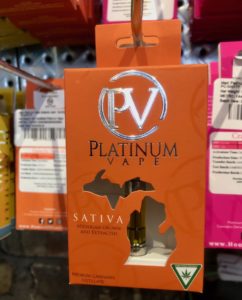
Edibles have a reputation for sneaking up on people and for people overdoing it. When it comes to food, we’re not used to eating one tiny square of a chocolate bar or only part of gummy candy. But with cannabis-infused food, you need to take care. If you’ve never had an edible, use the mantra “start low and go slow.” That means 5mg of anything, so that’s ½ of Michigan recommended a dose of 10mg, if you’re anxious about getting too high, cut it to 2.5 mg. And here’s where it gets tricky—because edibles are absorbed via that stomach and that’s a slower absorption process than smoking or vaping.
It takes an hour or more to feel the effect of an edible.
It’s a common mistake to eat a bite, think that you’re not feeling anything and have another bite or two and then BOOM, you’re unpleasantly stoned. Resist the urge to consume more until you feel the effect of the first dose. We recommend doing something active like taking a walk or a hike after you consume, you’ll then notice the high more gradually and we promise you’ll appreciate nature even more.
The high will last about 3-4 hours, depending on the THC level and your body composition. The high will just gradually fade away, the same way it came on. It’s quite pleasant.
Whatever you do—don’t drive while consuming or after consuming marijuana. It’s against the law and dangerous.
If you overconsume and feel extraordinarily high there are a few things you can do.
- Drink water.
- Nibble on a couple of black peppercorns.
- If you have CBD in the house, take a dose of that.
- Lock into the couch and watch a mindless TV series or cartoons and pet your dog or cat.
- Throw on your headphones and enjoy your music.
- Don’t worry. You’re not going to die—no one has and you’re not going to the first.
- Phone a friend who has experience with cannabis. You know that person and they’ll let you know everything is going to be alright.
- Take a walk, the fresh air will do you good.
- Take a hot shower, for some reason hot water helps bring you down.
- Go to bed and sleep it off.
We’ve written about cannabis microdosing before, check out this blog if you’re interested in that option.
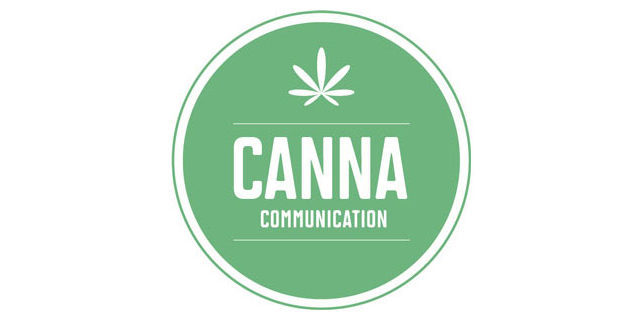
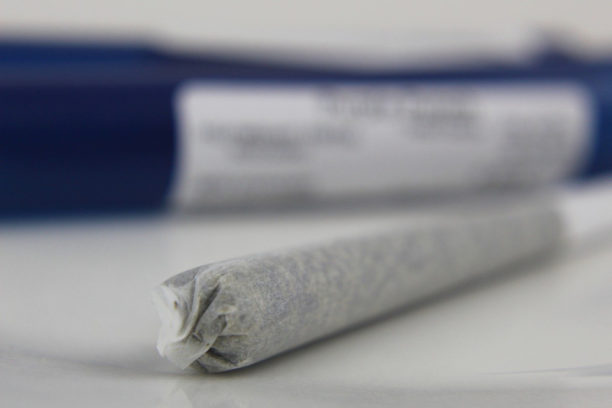
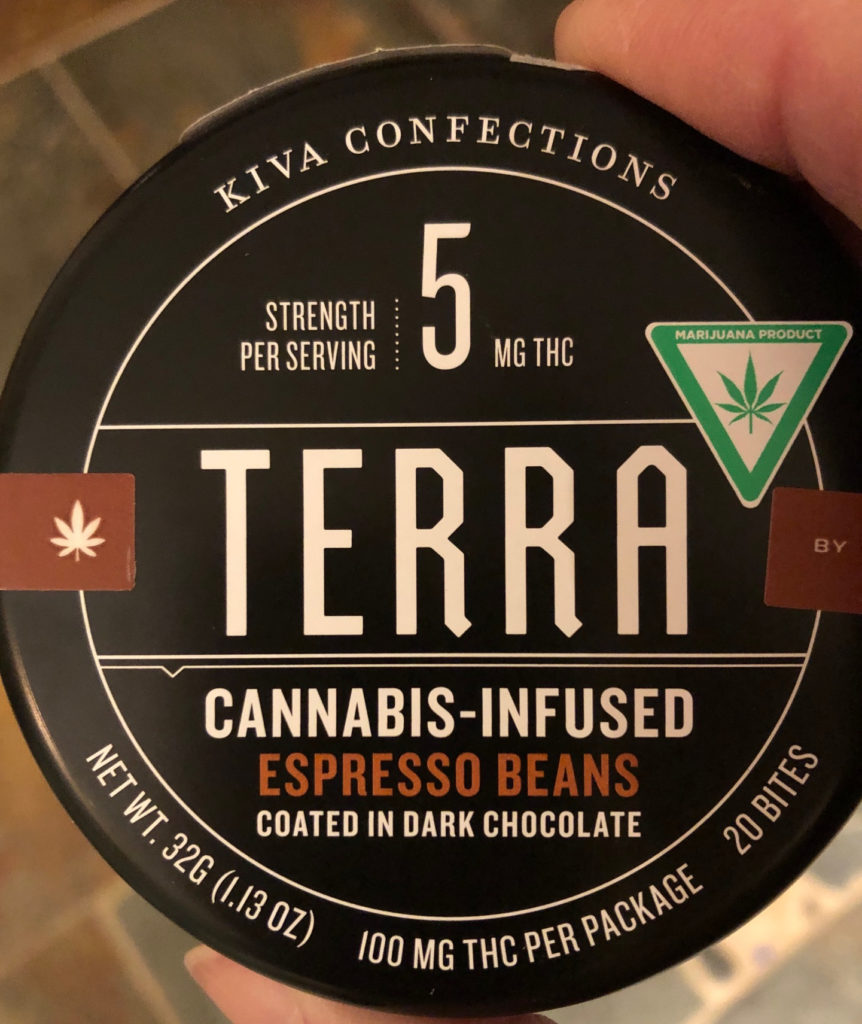
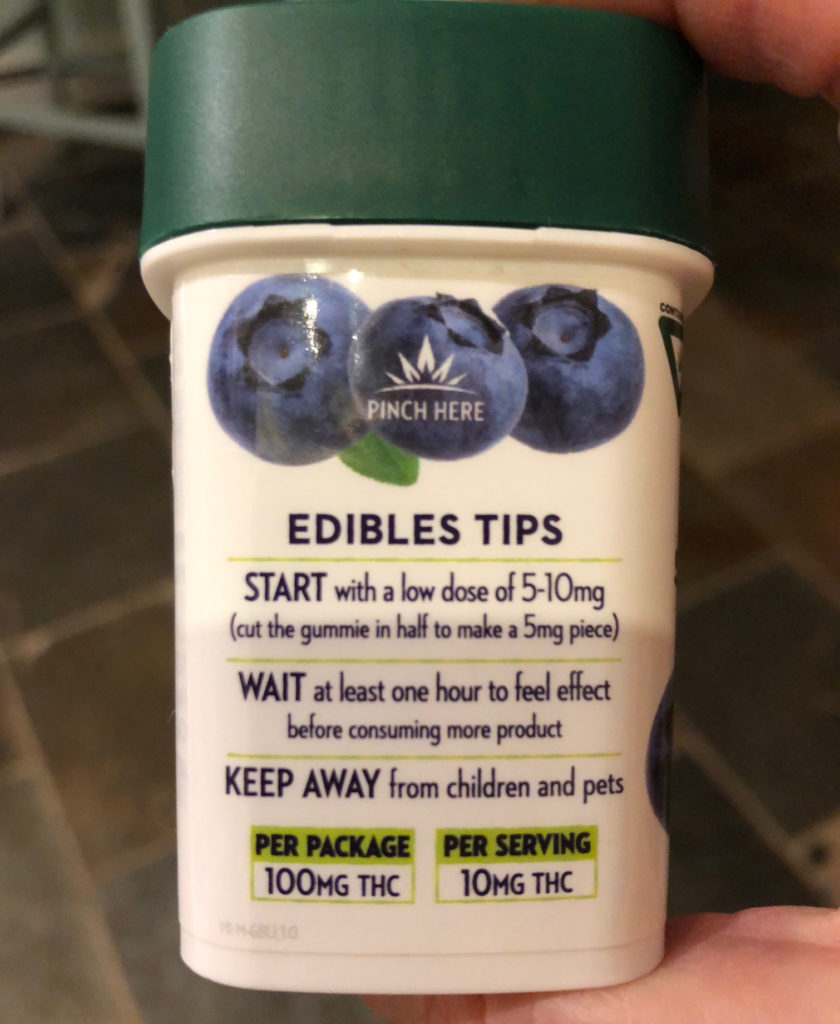

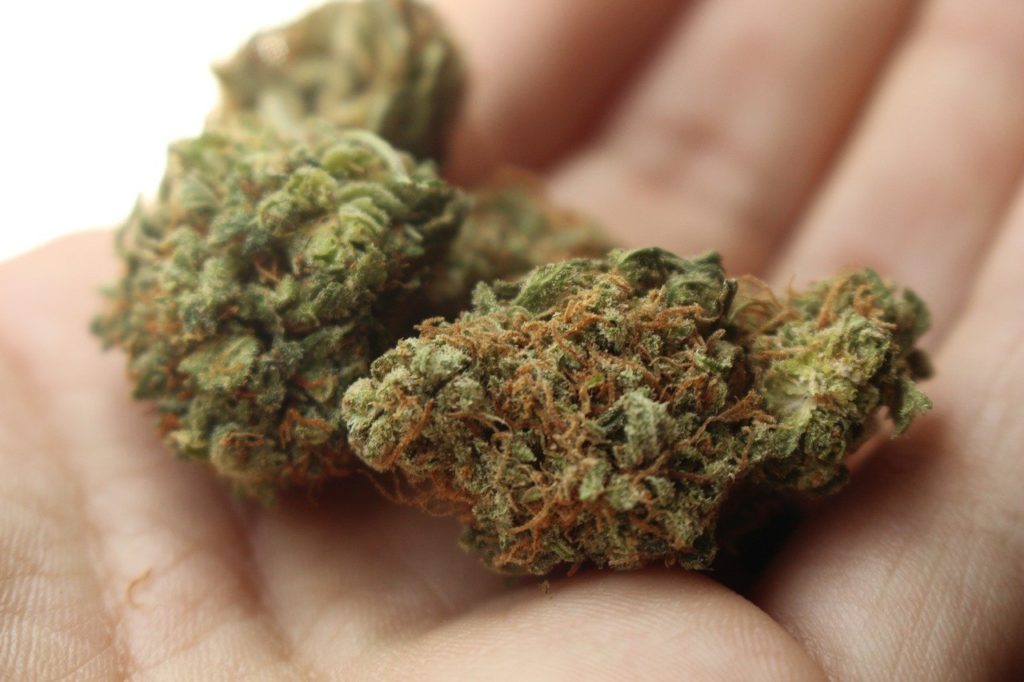

 It’s one thing to go state by state, or province by province, but for a whole country to end prohibition—that’s amazing. Canada is only the second nation in the world with legal cannabis. Keep in mind if you go travel to Canada bringing marijuana back to the US is highly illegal.
It’s one thing to go state by state, or province by province, but for a whole country to end prohibition—that’s amazing. Canada is only the second nation in the world with legal cannabis. Keep in mind if you go travel to Canada bringing marijuana back to the US is highly illegal. Finally, after almost seven decades of being illegal, hemp, the non-psychoactive brother to marijuana will be legal to grow and process across the US. This is excellent news for CBD-makers and farmers wanting to grow the plant for industrial purposes. It’s a versatile plant that can be used for paper, building houses and oil. The farm bill, which includes hemp was passed by the house and senate is now awaiting the President’s signature.
Finally, after almost seven decades of being illegal, hemp, the non-psychoactive brother to marijuana will be legal to grow and process across the US. This is excellent news for CBD-makers and farmers wanting to grow the plant for industrial purposes. It’s a versatile plant that can be used for paper, building houses and oil. The farm bill, which includes hemp was passed by the house and senate is now awaiting the President’s signature.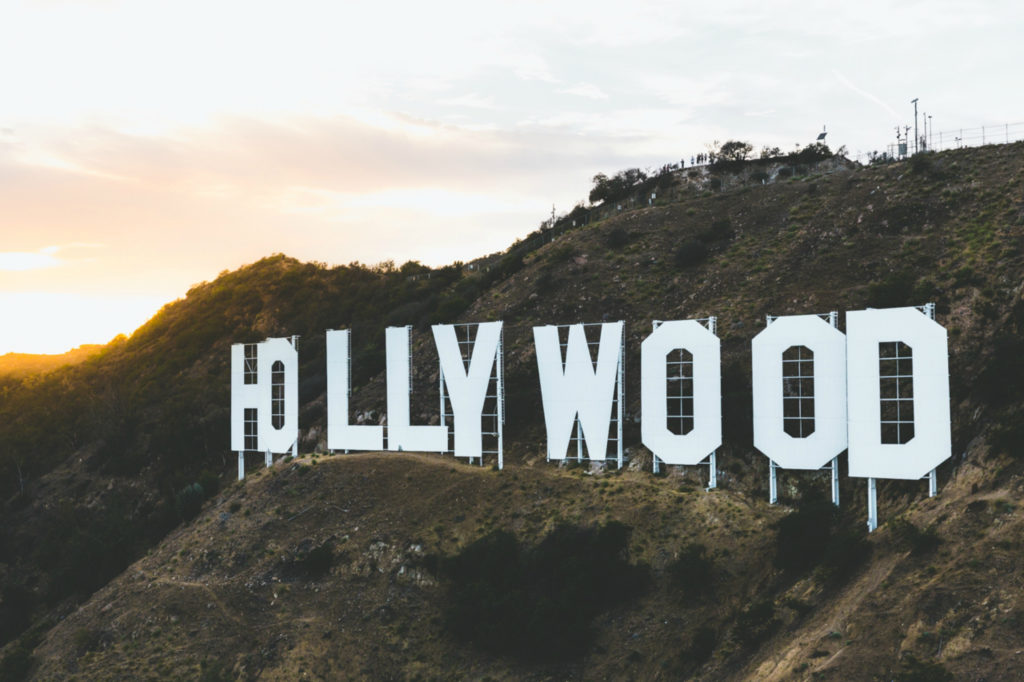 A little more than a year after Californians voted to legalize cannabis, the state opened its markets to adult-use cannabis on January 1, 2018.
A little more than a year after Californians voted to legalize cannabis, the state opened its markets to adult-use cannabis on January 1, 2018. 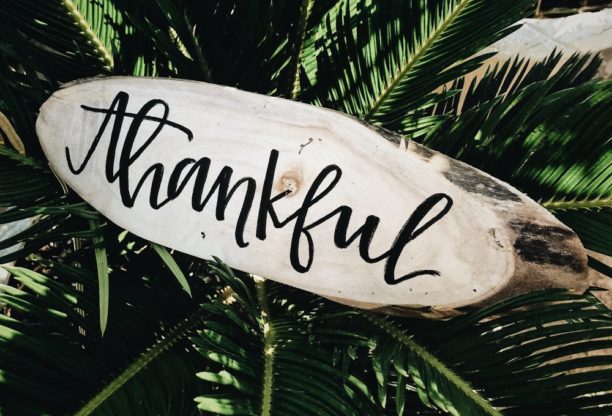
 ber where you were and what you were doing. Some memorable events are bad, like the Challenger explosion, the World Trade Center attacks, or the death of Jerry Garcia. And then there are the good, memorable events.
ber where you were and what you were doing. Some memorable events are bad, like the Challenger explosion, the World Trade Center attacks, or the death of Jerry Garcia. And then there are the good, memorable events.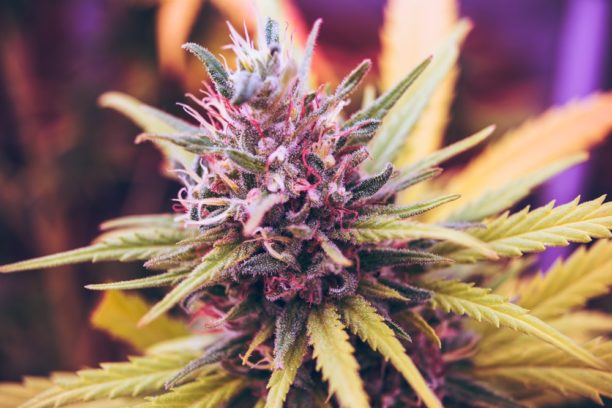
 Since communities can opt-in or out for medical marijuana, a similar policy applies to recreational marijuana legalization in Michigan. But communities will need to opt out. There won’t be provisioning centers in every community—only where zoning has been approved. We’ll probably see a bump in tourism—Michigan will be the first Midwestern state that is legal and there are lots of people who live close to Michigan. Expect that people will come for
Since communities can opt-in or out for medical marijuana, a similar policy applies to recreational marijuana legalization in Michigan. But communities will need to opt out. There won’t be provisioning centers in every community—only where zoning has been approved. We’ll probably see a bump in tourism—Michigan will be the first Midwestern state that is legal and there are lots of people who live close to Michigan. Expect that people will come for  kill you. There are no known cases of cannabis overdoses. Overusing it—usually happens when people overconsume edible cannabis. The effect of edibles is slow to be felt and people tend to take a few extra bites and then, BOOM, an uncomfortable feeling comes on. But it won’t kill you. You might think you are dying, but you won’t be.
kill you. There are no known cases of cannabis overdoses. Overusing it—usually happens when people overconsume edible cannabis. The effect of edibles is slow to be felt and people tend to take a few extra bites and then, BOOM, an uncomfortable feeling comes on. But it won’t kill you. You might think you are dying, but you won’t be.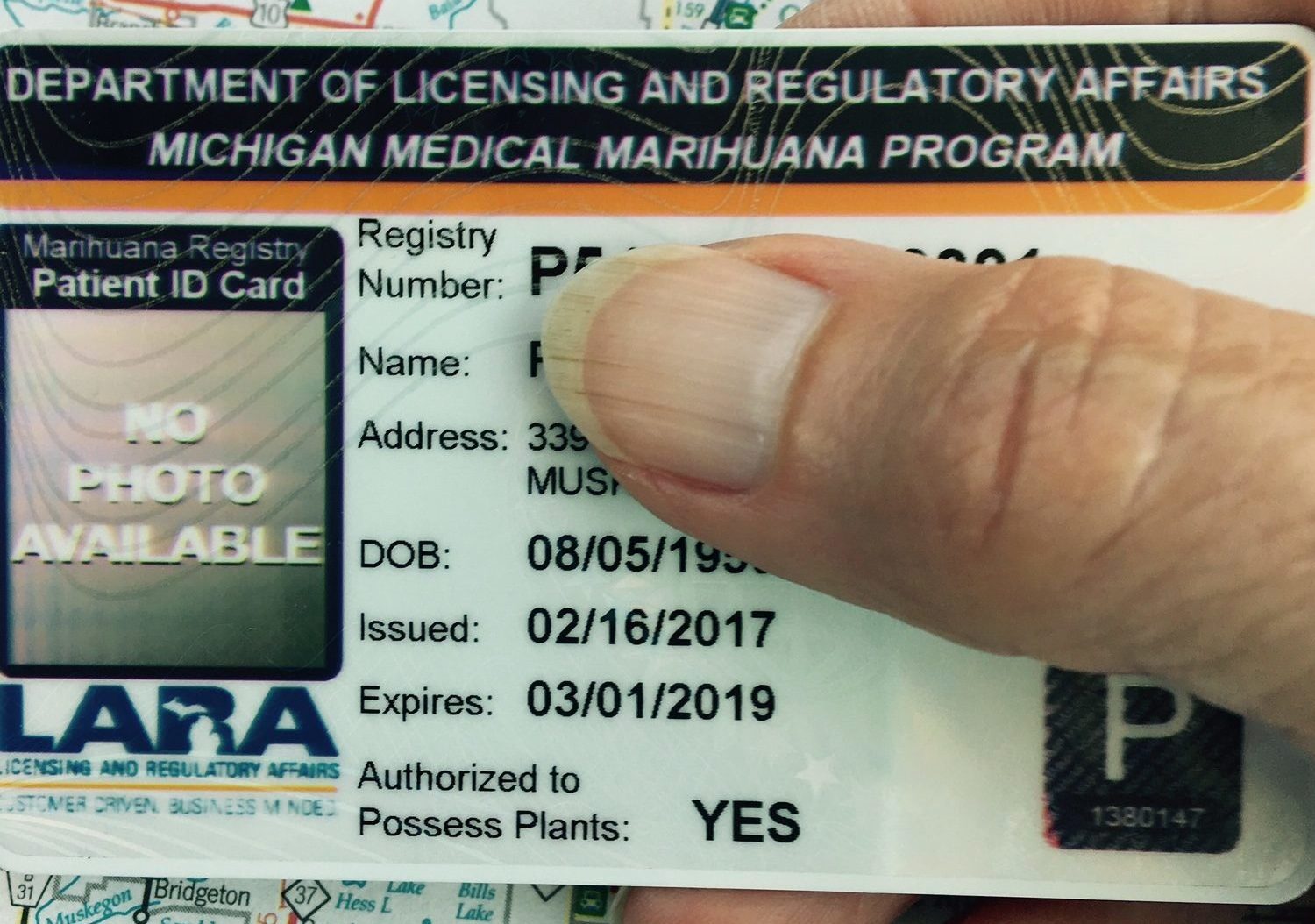
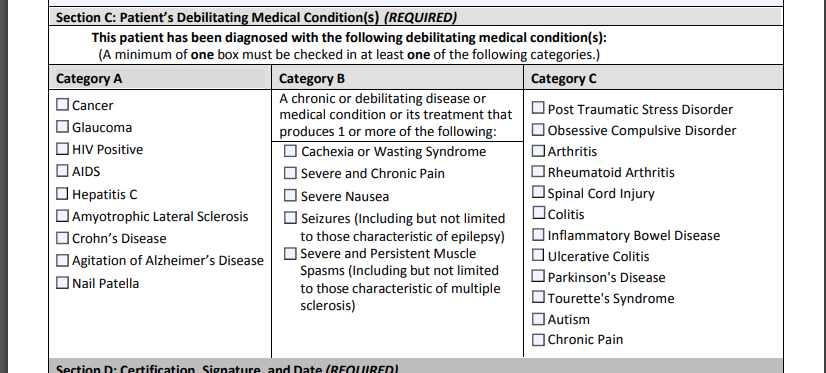
 to visit a provisioning center for your meds. You can find one close to you on Leafly or Weedmaps. We have a blog post about
to visit a provisioning center for your meds. You can find one close to you on Leafly or Weedmaps. We have a blog post about (Colorado, California, Nevada, Oregon, Washington, Alaska, Maine, Vermont, Massachusetts and the District of Columbia) until the whole country ends prohibition You can also head to Canada for a nice vacation, the whole country will be recreational legal starting on October 17, 2018. This also applies to people flying. While the TSA isn’t looking for cannabis, it is still illegal to bring it across state lines.
(Colorado, California, Nevada, Oregon, Washington, Alaska, Maine, Vermont, Massachusetts and the District of Columbia) until the whole country ends prohibition You can also head to Canada for a nice vacation, the whole country will be recreational legal starting on October 17, 2018. This also applies to people flying. While the TSA isn’t looking for cannabis, it is still illegal to bring it across state lines.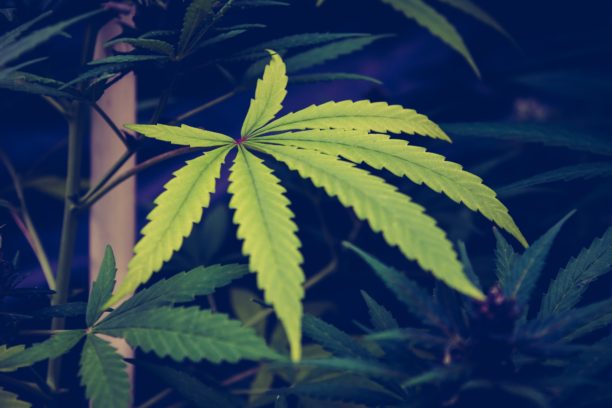
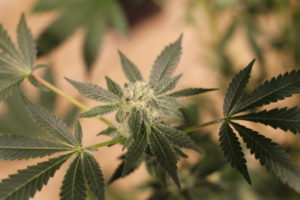 We have public opinion on our side. From big national surveys like
We have public opinion on our side. From big national surveys like

 “With the largest U.S. state now legal, Americans will see cannabis more normalized, and visitors to the Golden State returning home will wonder why they are second-class citizens when it comes to personal liberty and cannabis policy common sense,” Hank said.
“With the largest U.S. state now legal, Americans will see cannabis more normalized, and visitors to the Golden State returning home will wonder why they are second-class citizens when it comes to personal liberty and cannabis policy common sense,” Hank said.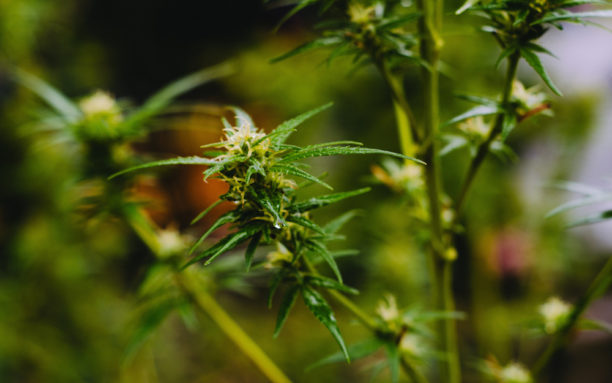
 What this action does is give U.S. Attorneys the ability to prosecute adult-use marijuana businesses. Many of which just opened earlier this week in California.
What this action does is give U.S. Attorneys the ability to prosecute adult-use marijuana businesses. Many of which just opened earlier this week in California.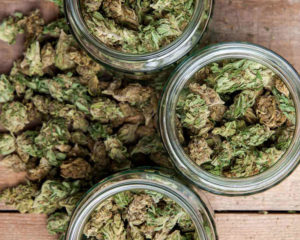 that’s up for renewal later this month. The powerful amendment, which has bipartisan support, protects states with medical marijuana programs. It prevents the federal government from using resources to prosecute people and businesses that are complying with the law in medical marijuana states.
that’s up for renewal later this month. The powerful amendment, which has bipartisan support, protects states with medical marijuana programs. It prevents the federal government from using resources to prosecute people and businesses that are complying with the law in medical marijuana states.